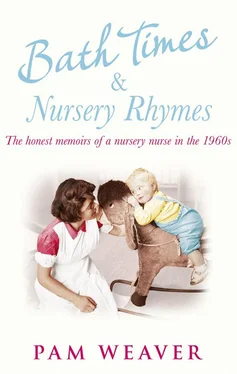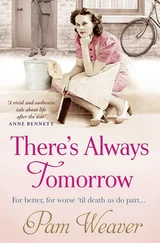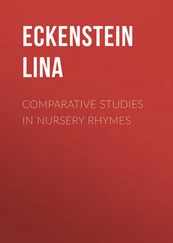‘Me,’ I squeaked as I tried to make my voice sound as small as I could.
‘Why the hell didn’t you wake me?’ she bellowed.
‘Wake you?’
‘The person on Lates is supposed to wake the night nurse,’ she shouted.
‘Er … I’m sorry …’ I tried my best to ignore the fact that she was standing there, screaming at me with only her see-through nightie on. ‘Nobody told me.’
Actually, that was a lie. Miss Carter had told me but I had forgotten.
‘You stupid little fool!’ she ranted. ‘I was supposed to be meeting my boyfriend at eight!’
‘I’m sorry …’
‘What am I going to tell him? More importantly how am I going to tell him? I don’t even have his phone number!’ She was beginning to sound hysterical.
‘I’m sorry …’
‘You stupid idiot. You’ve ruined my whole life …’
‘I … I’m sorry …’
‘Didn’t Miss Carter tell you to wake me?’
I shook my head. ‘No.’
That was another lie and now I had a new dread. What if Miss Carter walked in right now and heard me saying she hadn’t told me to wake the night nurse? I looked anxiously over Nurse Adams’ shoulder.
‘I’m sorry …’
‘And stop saying you’re sorry, you silly cow!’
‘I … I’m …’
I froze. She was so angry I felt sure she was going to hit me. She glared for a few seconds and then swept out of the room and slammed the door. This time the glass in the window frame shook.
‘Ha, ha, ha!’ Isolde rolled herself backwards on the sofa and kicked her feet in the air. ‘That was terrific. What a laugh!’
‘Actually,’ I confessed, ‘I think Miss Carter might have mentioned waking the night nurse.’
‘Who cares,’ Isolde laughed.
‘Serves her right,’ said the girl cutting her toenails. Her voice was toneless. ‘She always was a stuck-up old cow!’
‘Miss Carter?’
‘No, you goon! Audrey Adams.’
I was too upset to comment. ‘I think I’ll go to bed,’ I said, slinking out of the room.
Oh Lord, what had I done? I had signed myself up to a year in this place, then two years training in another nursery and finally a further year somewhere else when I’d finished my training. Alone in my room, I undressed and lay my head on my pillow. I wept silent tears as I wondered just how much of the money my dad would have to pay the council if I turned up on the doorstep tomorrow. Should I go and see Matron in the morning and tell her I wanted to go home? But even as the thought entered my head, I knew I wouldn’t do it. Somehow, I had to stick this out.
The person in charge, Matron Thomas, lived in a flat within the building. Matron was a highly-strung woman, who constantly complained about ‘having a dreadful head’. We didn’t see a lot of her except perhaps when there was a new admission, or the parents came to visit. We would hear her coming, her blue nylon overall with its pleated skirt rustling as she walked into the nursery, usually to complain that the children were too noisy or somebody had left something where it shouldn’t be. She was a little aloof but came down on us like a ton of bricks if she saw something she disapproved of.
Life in those nurseries was hard. A lot has been written about the injustice done to the children, and quite rightly so. It’s heartbreaking to hear about children being beaten and abused, especially in a place which is supposed to be a place of care, but I have to say that in the nurseries where I worked, everybody did their best to give the children a happy experience. Sometimes the girls, myself included, took a child out on their days off. We would buy an extra toy out of our own money for the children who were upset and we were always there for a quick cuddle when it was needed. The rigid routine was hard for the free- spirits like Isolde but equally difficult for people like me. I didn’t mind being told what to do, but sometimes it felt as if I was owned body and soul by those in charge of the nursery and it was hard to please everybody.
At sixteen I was only a few years older than the oldest child, and we nursery assistants were all treated like dogs. We worked a twelve-hour stretch, with two hours off during the day. Off duty was either 9.30–11.30, 2–4 or best of all 5–7, because tea was at 4.30, so it meant you had an extra half hour and a lovely long evening to yourself. Having that afternoon break was a definite advantage in the summer, but the evening was great if you were going out. We were only allowed to stay out until ten p.m., or if you had a ‘Late Pass’, you could stay out until 10.45 p.m. It made having a social life hard because by the time you’d come off duty at seven and got ready, you were lucky to have two hours away from the Home. Matron Thomas didn’t seem to understand that dances went on until 11 p.m. and had hardly warmed up by the time you had to leave and catch the bus. It was tough if you were going to the pictures as well. You didn’t always get to see the end of the film because you had to make the bus stop in time for the last bus up the hill. I saw most of the films of the day in two halves. You could walk into the pictures any old time so I would get there in time to see the end of one showing and then stay for the beginning. Whistle Down the Wind , A Taste of Honey , Carry on Regardless … I saw them all, back to front. And when you got back to the nursery, if you rang the doorbell to get in after 10.45 p.m. you would forfeit some of your precious off duty another time.
Anyone out after 10.45 p.m. was, according to Matron Thomas, ‘up to one thing and one thing only.’ She was probably right. We would be up to one thing and one thing only – running like mad up the hill because we’d missed the bus and we wanted to get to the door before 10.45 p.m!
We did ‘Lates’ two evenings a week and everybody had to take turns to do ten nights of night duty, which lasted from 9 p.m. until 8 a.m. After the ten nights on duty, the bonus was that you got two days off together. Normally we had one day off a week but you could never guarantee when it would be. You might get Monday off one week and then Saturday the following week, which meant you’d work eleven days on the trot. Because of the uncertainty, it was hard to commit to anything outside the nursery or to join a club.
Not only did we work long hours but we also had very low pay. My first salary was nine pounds, four shillings (nine pounds, twenty pence), which in today’s money worked out at two pounds, thirty pence a week! That was for six weeks’ work because we always worked ‘two weeks in lieu’, as they called it. That meant when you left a post, you would get the extra two weeks pay in your final wage packet. And when I started my training a year later, my salary actually went down because the council took back some money to offset the cost of training me. As a result, for two years, from 1962–64, I had an average of six pounds, fourteen shillings a month. At that time, a shop girl would be on three pounds, five shillings a week – i.e. thirteen pounds a month, but of course she would have to pay her living expenses out of that. Our wage was what they called ‘all found’, which meant all living expenses had already been taken out.
Life in the nursery was also very insular. With so little time off duty, the rest of the world passed us by. Of course we saw the news on TV, but the milestones of history meant little to us at the time. But perhaps that’s always the case – you only realise the importance of an event with the passing of the years. Hence, the inauguration of President Kennedy in January 1961 was only worthy of note because he was relatively young at the time. By comparison Harold Macmillan, our own Prime Minister, seemed like a dinosaur. Personally, I found listening to The Shirelles singing what I considered the best song ever written, ‘ Will You Still Love Me Tomorrow’ on my Dansette radio far more exciting.
Читать дальше












